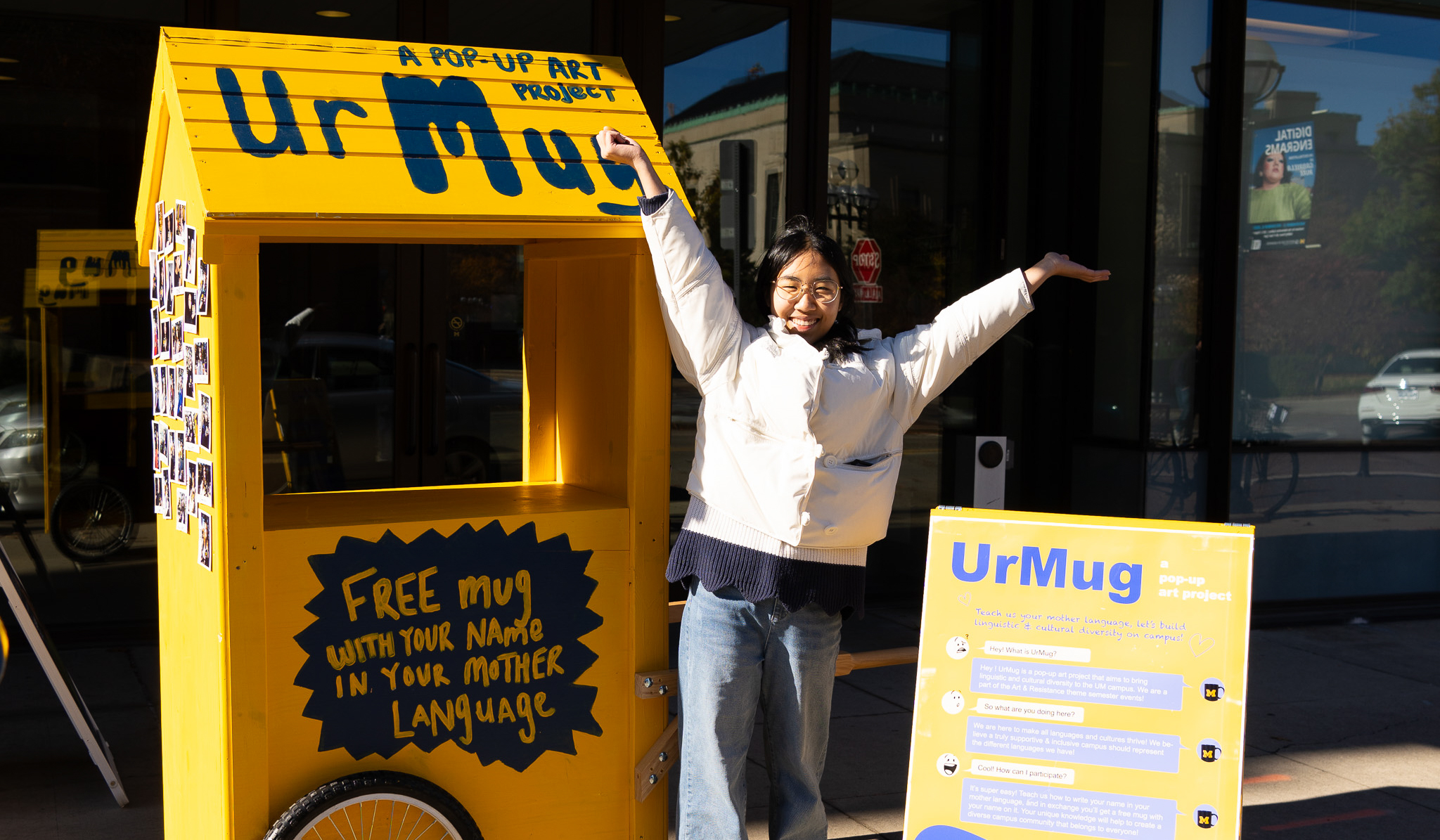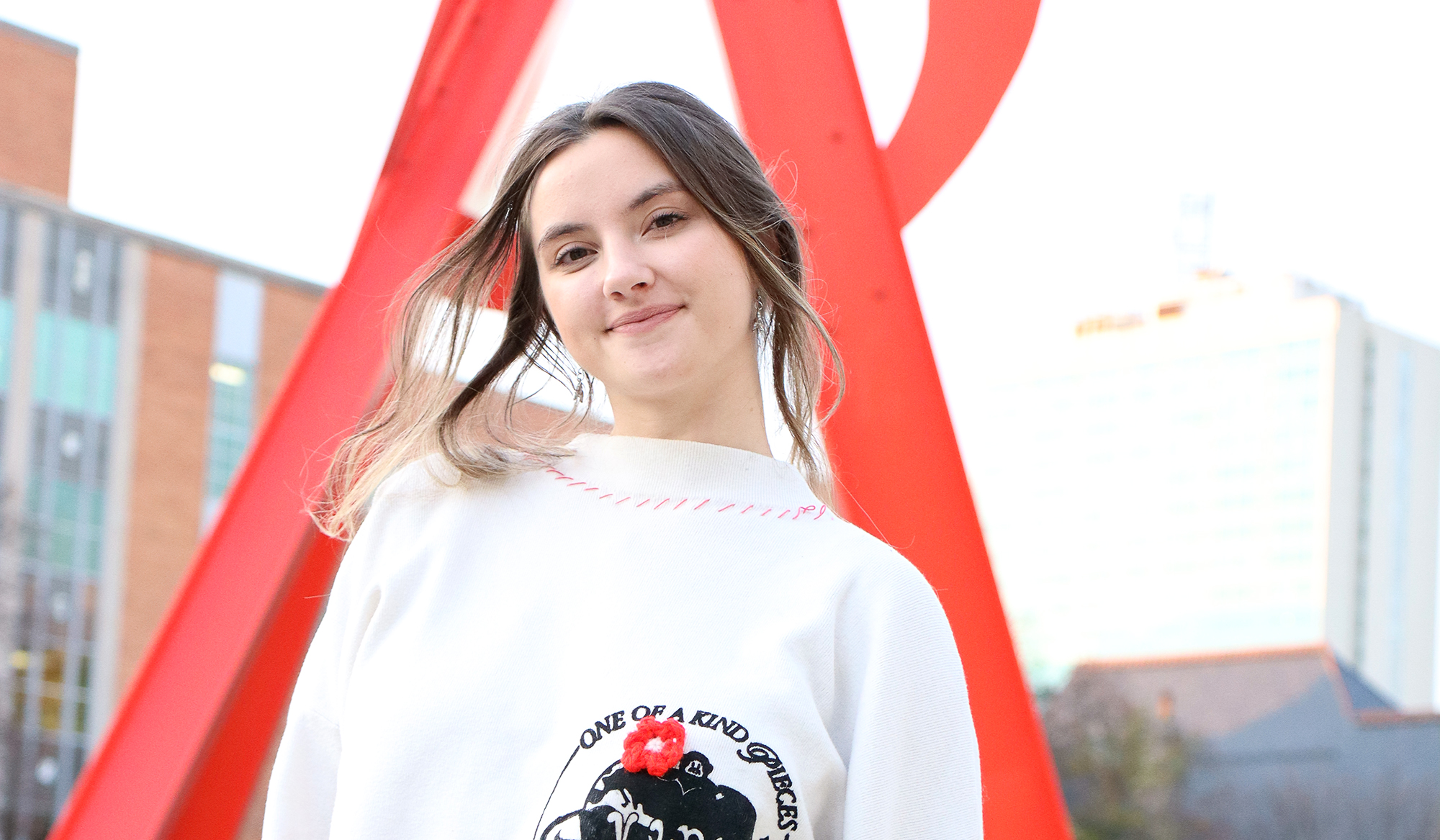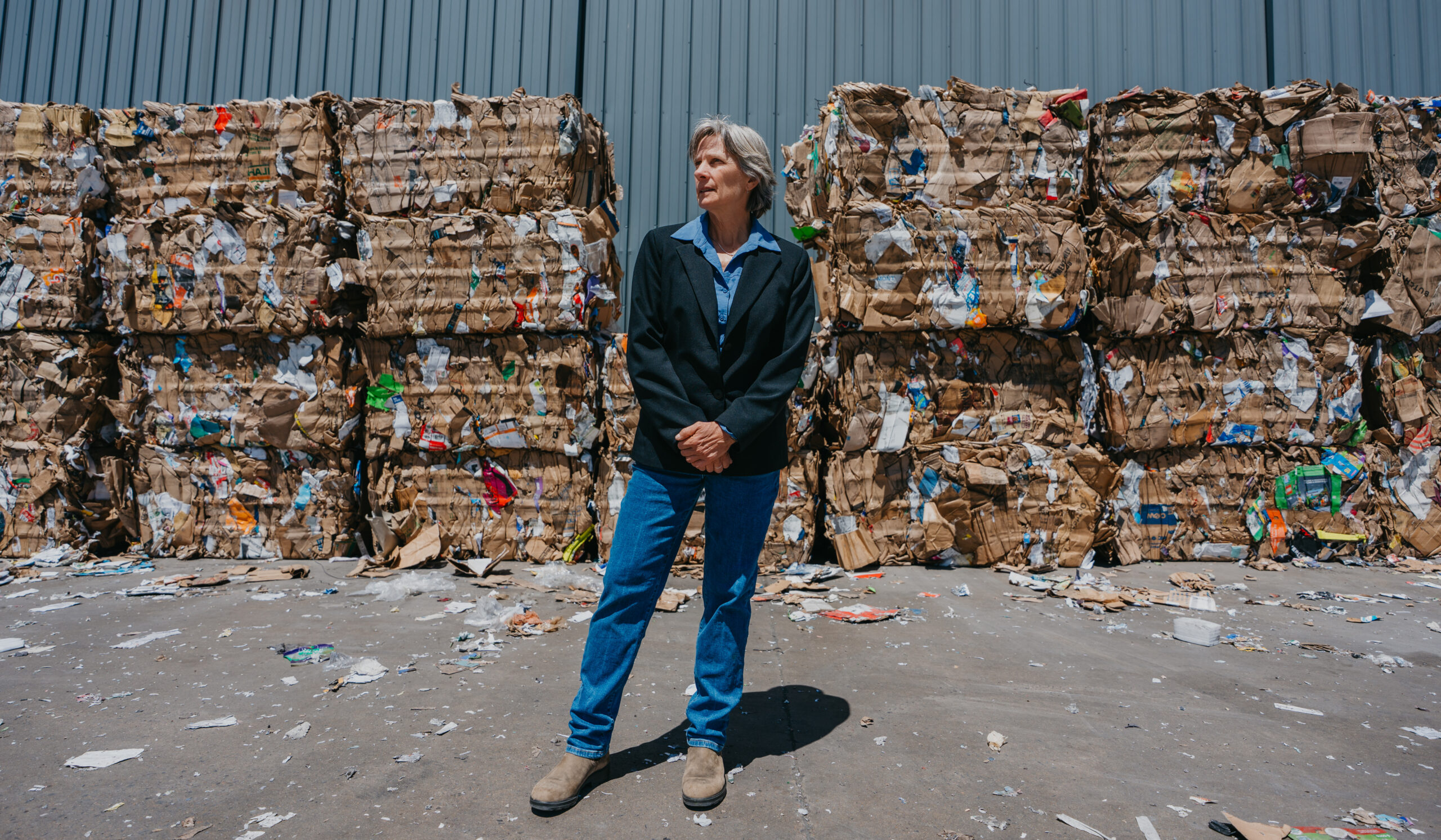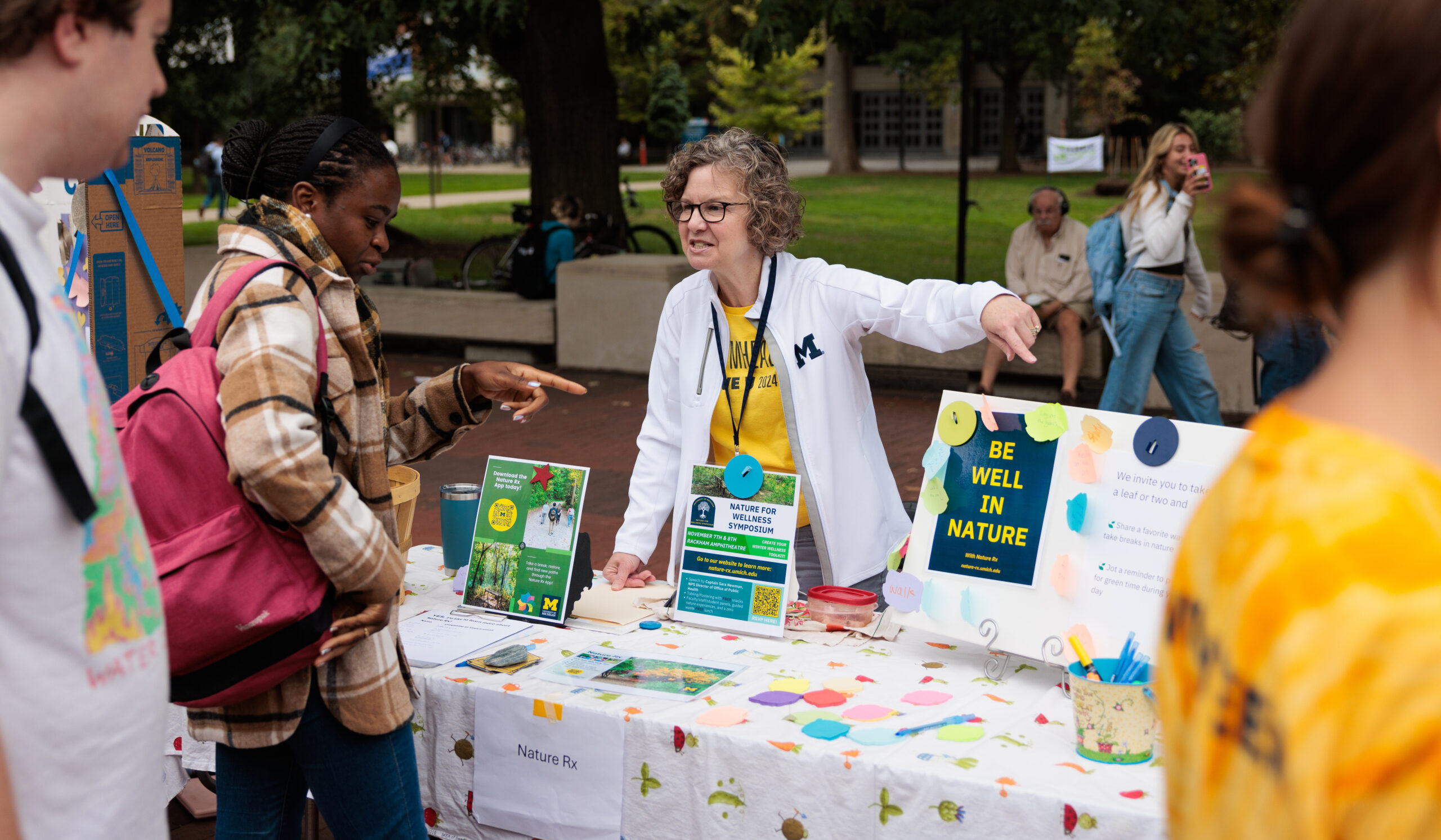Yuchen Wu cannot find a University of Michigan mug with her name on it.
And, even if she could, it would be her name in English — not Mandarin, her first language.
She’s reminded of this every time she looks at her MCard, which depicts her name in English, or remembers her admission letter, which was written in English.
An international student from Shanghai, China, Wu faced foreign language anxiety her first year at U-M, struggling with linguistic word choice, pronunciation, and sentence structure when she couldn’t understand native English speakers. After doing a bit of reading, she found that it’s a common experience called linguistic inferiority, where people who speak a non-dominant language are made to feel lesser than or “denied,” in Wu’s words.
A sophomore at Stamps School of Art and Design, Wu wanted to find a way to promote linguistic diversity on campus and found an opportunity when a class project required her to create a speculative project proposal that could be as vast as the students wanted, because it didn’t need to be executed. Her initial proposal was to change campus products.
“I redesigned the school’s MCard so that it not only exists in the English version but the version with our name in our own mother language. I redesigned the admission letter so that the admission letter can be bilingual, and I redesigned a hoodie with a block M on it, but the block M consists of the name ‘University of Michigan’ in different languages,” Wu says.
Lastly, she designed a U-M mug with her name on it.
“Every time I go to The M Den, there’s just not a chance that I can find my name there. And I know so many people experience the same thing as me,” she says.
Wu set out to give students like her a better experience.
Wu was also enrolled in an Institute of Humanities mini-course that explores how arts and exhibitions activate research within the humanities, establishing a space for informed and inclusive public engagement. Though she did not need to actualize her art class project proposal, the mini-course instructor, Amanda Krugliak, ’84, gave her the encouragement and moral support to pursue it and became her project mentor.
“I think for all art, it cannot only exist as an idea, but it is really after doing this and interacting [with] people that I feel I am really making a solid change. And so I think it is just important not that it only exists in me, but making it real and letting others see it. I think that’s a big part of what artists should do,” Wu says.
Over the summer, Wu and Krugliak applied for a student grant called the U-M Arts and Resistance Theme Semester Project Support, funded through the U-M Arts Initiative, which offers money to support student-led arts initiatives. The grant program looked to fund projects in the fall 2023 semester that connected to the semester’s theme, “Arts and Resistance.” The theme reflects how creativity and making can arise out of oppression and destruction and the power of the arts to shape society. The grant supported the materials and cost of building the cart (designed by Wu) and purchasing 300 mugs for three pop-ups in late October and early November.
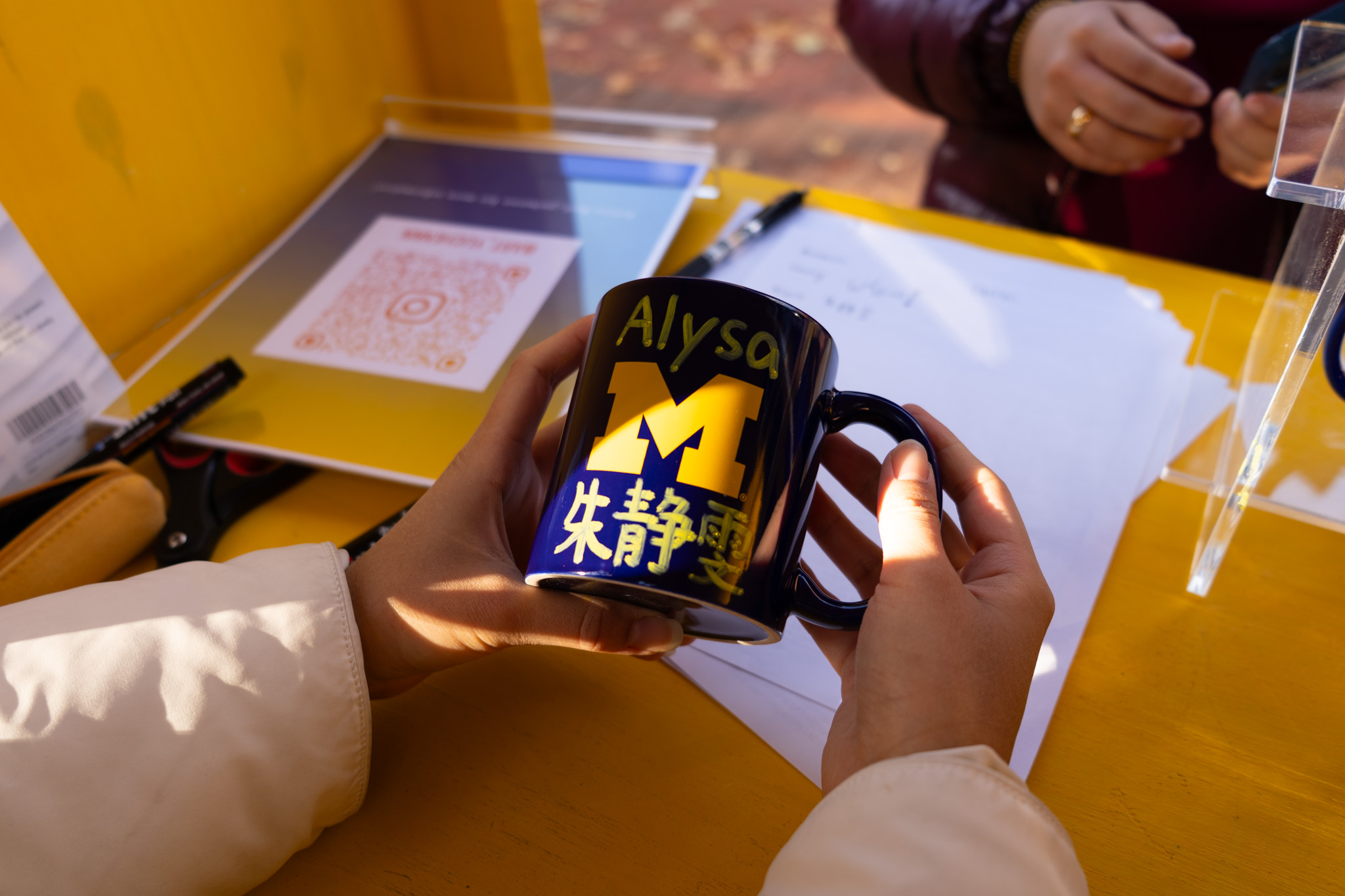
Wu distributed 100 mugs and heard more than 20 languages on her first day of the “UrMug” pop-up on the Diag, including Hindi and Greek. She asked students to spell their names in their mother language, then she painted them on the mugs with an acrylic paint marker.
Though some say “native” language, Wu calls her first language her “mother” language.
“‘Mother’ feels more intimate to me. I like to think of how language has this kind of intimacy with me, and it is almost a part of my identity,” she says. After painting their names, the mugs were given to the visitors to keep at no cost, but Wu didn’t want to lose the memories. To remember the project and each person, she asked to take a Polaroid-style instant photo of them with their mug and for the visitors to sign it with their name in their mother language. Wu added each photo to the side of the cart, quickly filling the space with dozens of smiling faces and turning the cart into an artifact itself.
Opting for an instant photo rather than a digital one was an artistic choice as well.
“There’s some unique aspect of the picture only being one that is interesting to me. I think because our name is just so unique to me, we only have one name. How about we only have one picture?” Wu says. “And it cannot be copied, which I feel like is special.”
Katherine Fiorillo is the editor of Michigan Alum.

